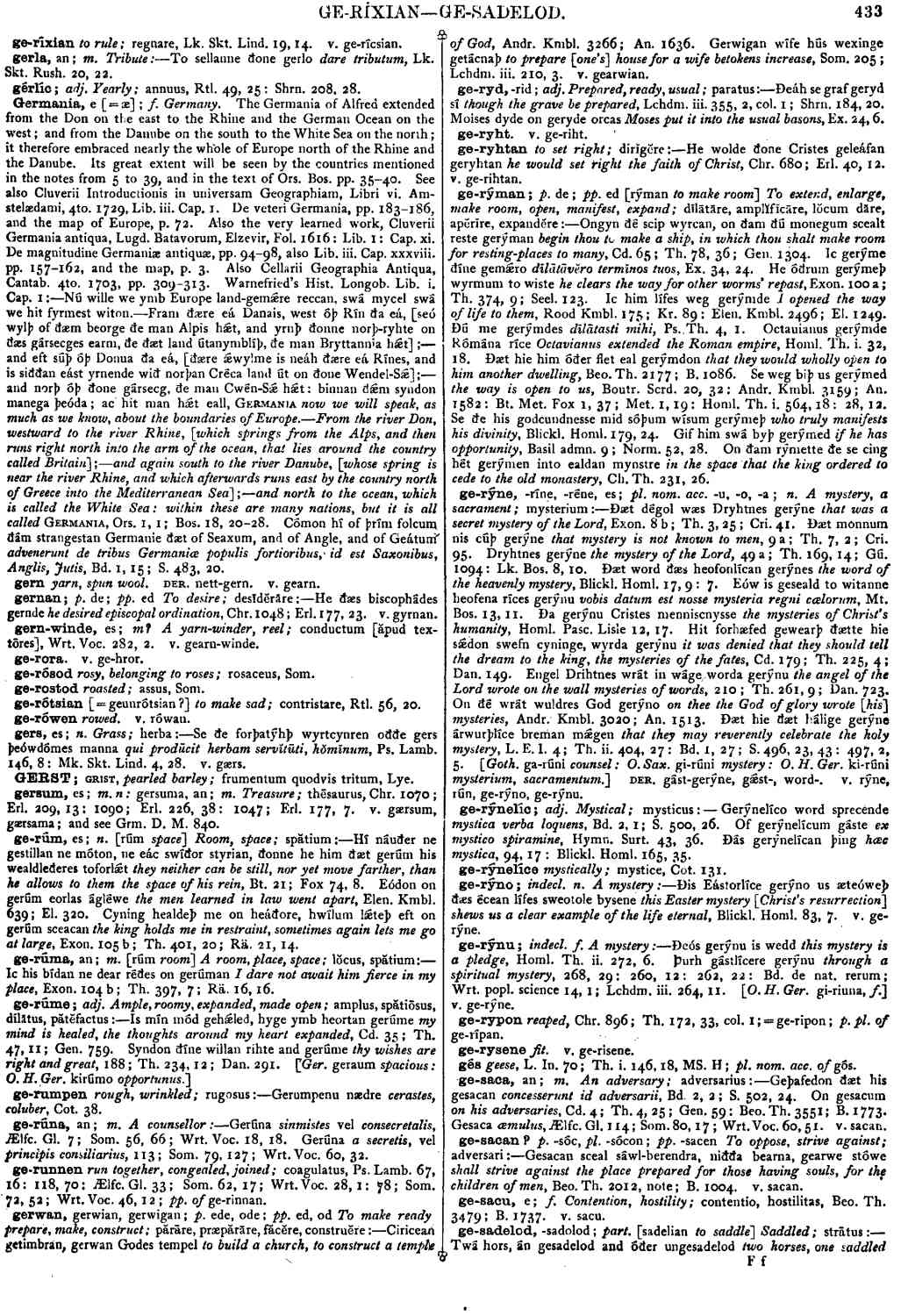Germania
- noun [ feminine ]
- Ors. Bos. pp. 35-40. See also Cluverii Introductionis in universam Geographiam, Libri vi. Amstelædami,
4to. 1729, Lib. iii. Cap. 1. De veteri Germania, pp. 183-186, and the map of Europe, p. 72. Also the very learned work, Cluverii Germania antiqua, Lugd. Batavorum, Elzevir, Fol. 1616: Lib. 1: Cap. xi. De magnitudine Germaniæ antiqux, pp. 94-98, also Lib. iii. Cap. xxxviii. pp. 157-162, and the map, p. 3. Also Cellarii Geographia Antiqua, Cantab. 4to. 1703, pp. 309-313. Warnefried's Hist. Longob. Lib. i. Cap. 1
-
Nú wille we ymb Europe land-gemǽre reccan, swá mycel swá we hit fyrmest witon.-Fram ðære eá Danais, west óþ Rín ða eá, [seó wylþ of ðæm beorge ðe man Alpis hǽt, and yrnþ ðonne norþ-ryhte on ðæs gársecges earm, ðe ðæt land útanymblíþ, ðe man Bryttannia hǽt] and eft súþ óþ Donua ða eá, [ðære ǽwylme is neáh ðære eá Rínes, and is siððan eást yrnende wið norþan Créca land út on ðone Wendel-Sǽ] and norþ óþ ðone gársecg, ðe man Cwén-Sǽ hǽt: binnan ðǽm syndon manega þeóda; ac hit man hǽt eall, GERMANIA
now we will speak, as much as we know, about the boundaries of Europe.-From the river Don, westward to the river Rhine, [which springs from the Alps, and then runs right north into the arm of the ocean, that lies around the country called Britain] and again south to the river Danube, [whose spring is near the river Rhine, and which afterwards runs east by the country north of Greece into the Mediterranean Sea] and north to the ocean, which is called the White Sea; within these are many nations, but it is all called
- GERMANIA, Ors. 1, 1; Bos. 18, 20-28.
-
Cómon hí of þrím folcum ðám strangestan Germanie ðæt of Seaxum, and of Angle, and of Geátum
advenerunt de tribus Germaniæ populis fortioribus, id est Saxonibus, Anglis, Jutis,
- Bd. 1, 15; S. 483, 20.
Bosworth, Joseph. “Germania.” In An Anglo-Saxon Dictionary Online, edited by Thomas Northcote Toller, Christ Sean, and Ondřej Tichy. Prague: Faculty of Arts, Charles University, 2014. https://bosworthtoller.com/15742.
Checked: 0